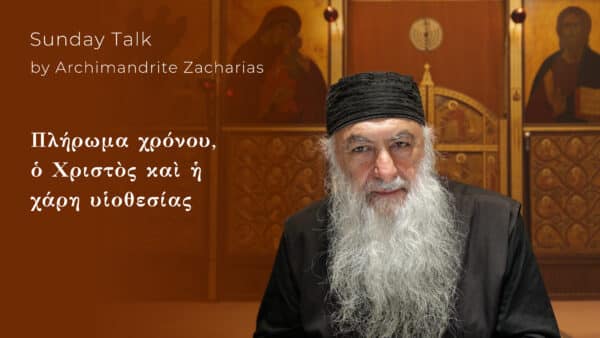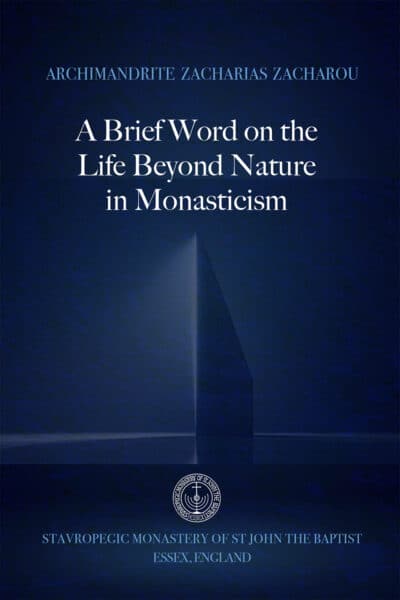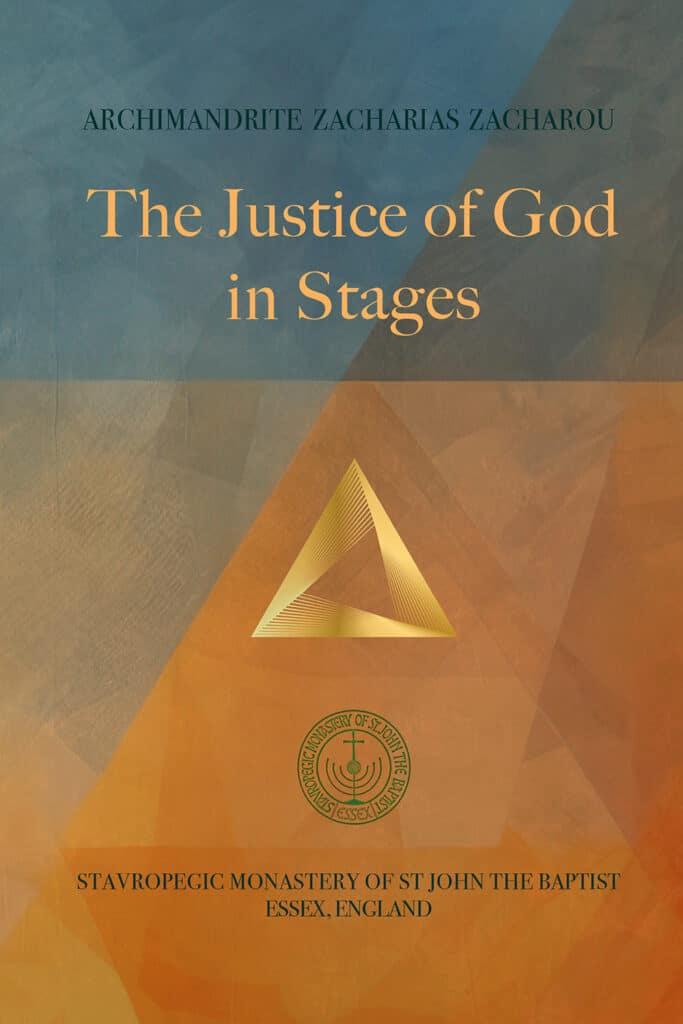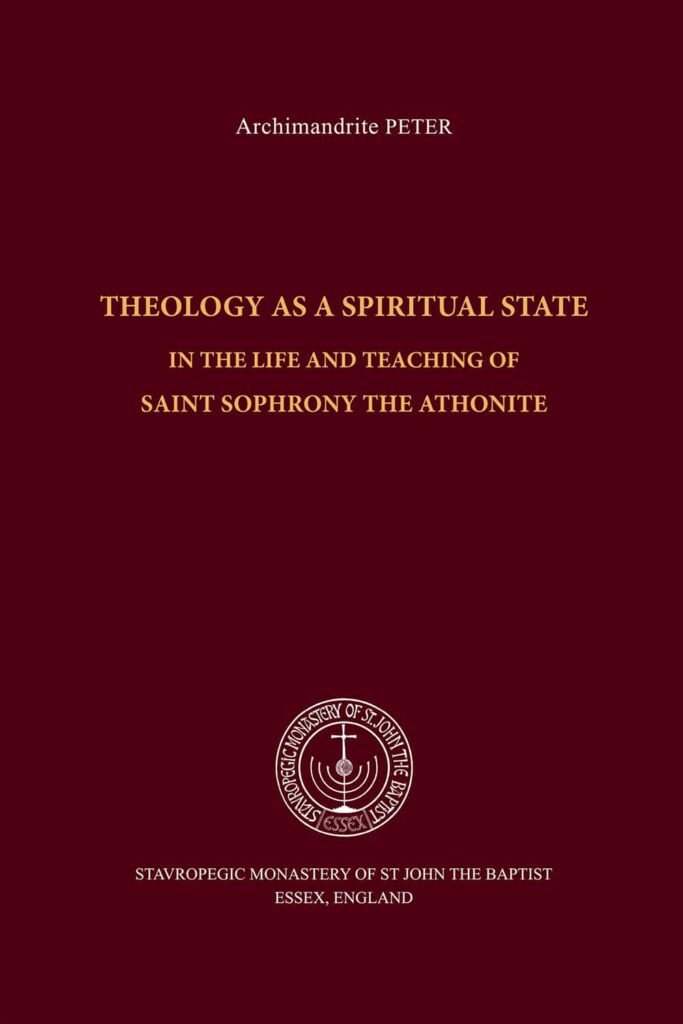In the prayer to the Holy Spirit we say: ‘O Heavenly King and Comforter, which art in all places and fillest all things.’ Then how is it that, ‘The Holy Ghost was not yet given; because that Jesus was not yet glorified’?1John 7:39. The Gospel means that there was no Holy Spirit in the earth of the heart of man in a permanent way. And that is why we ask the Comforter to ‘come and abide in us.’ The grace of God is the mystery that marks our life forever. And the most important question is how to remain in contact with this grace, how to increase it and fulfil the purpose for which God gives us His grace.
In today’s Gospel,2John 9:1-38. we find repeated the theory of the three stages of spiritual life. In other cases, such as the blind man of Jericho, those who were sick persistently asked the Lord to heal them.3Mark 10:47-48. But although the blind man in today’s Gospel had not asked to be healed, Christ approached him of His own will and healed him. When the Lord paradoxically anointed his eyes with clay, as if to aggravate his blindness, He in fact granted him healing and the pure gift of the first grace. When the Lord sent him to the pool of Siloam, the blind man showed faith, obeyed the commandment and collaborated with God. In this collaboration God’s grandiose purpose for man is revealed: man can then become an event even for his Creator, as St Sophrony says.
Likewise in our lives, the grace of God initially comes as a pure gift. When we turn to Him and open the door of our heart, He freely enters in and performs the great miracle. This initial enlightenment helps us realise the utter darkness in which we live and we turn to God ‘with strong crying and tears’,4Heb. 5:7. washing ourselves in the pool of Siloam. In the first stage, God may bestow on man even the grace of the perfect.
But then we see the blind man being abandoned by the Lord and thrown into a turmoil of judgments: he is judged by the Pharisees and by all the people who knew him; everything becomes a judgment until he is finally cast out of the Synagogue, exiled from this world. After he went through this second stage of God forsakenness, the Lord found him again so that he now entered the third stage of spiritual life. This time, he received an inner healing and the eyes of his heart were opened to recognise the Lord and worship Him, which means that he became a perfect hypostasis, speaking to God face to Face.
After the baptism of catechumens at Easter, the Church appointed that St John’s Gospel should be read. After the first light of Holy Baptism, the newly illumined had to receive what the Fathers called ‘mystagogical catechism’ and see Christ presented as ‘a sign spoken against’,5Luke 2:34. bringing an ever-increasing division between the Pharisees and those who would believe in Him.
When the grace of God is at work in our life, it can also become a sign spoken against, especially in the second period of spiritual life. And if the faithful are fainthearted and do not have the right theory, they may fall into the grievous temptation of doubt, being attacked by thoughts such as: ‘Was grace perhaps a mere impulse of my youth? Was it my imagination? ’In this stage, the theory and teaching of our holy Fathers is for us a great weapon and a banner of incorruptible hope, based on the fact of God and on the truth that ‘He careth for us’.61 Pet. 5:7. If the grace of God found us, it was because God cared for us, not because we did something to deserve it.
Fr Zacharias’ new book, ‘Justice of God in Stages’, which speaks about the three stages of spiritual life comes at a stage in his life, when he can speak of such an important theme. In my humble opinion, one cannot speak light-heartedly about this theme. One first needs to have walked the way and known the mystery of the ways of salvation, and then speak. Even the Prophet David says: ‘I believed, therefore have I spoken,’ but immediately he adds: ‘I was greatly afflicted: I said in my haste, All men are liars’.7Ps. 116:10-11.
The Justice of God in Stages
Towards the end of his life, I noticed that Father Sophrony would say in his talks: ‘Having been a monk for more than 60 years, perhaps I could allow myself to analyse and explain this or that mystery.’ Our Fathers have walked this way and then they have spoken, bearing witness to the love of God for man, which gives us incorruptible hope and strength. This is the privilege we are enjoying now, to have Fathers who, after 50-60 years of monastic life, confirm what the Fathers before them have said. Therefore, we can embrace their word with total trust.
When they lose the first grace, not knowing how to live this loss, some even fall away from faith. St Sophrony uses the expression ‘the ways of the Lord’ to refer to these stages through which we all have to go in order to increase in God. A question that troubles the conscience of many Christians is: ‘Is it God that withdraws His grace? Or is it man who loses it?’ Often it is both. Often God waits for a moment when we make a mistake, and then He withdraws, thus making our self-emptying greater. Whoever has not gone through the ascetic struggle to reacquire grace lacks authentic spiritual knowledge.
All this instruction, all this judgment to which God subjects us, aims to transmit to us a greater knowledge; and in this life, knowledge equals sufferings. We increase in knowledge the more we dive into this shoreless ocean of the sufferings of those who follow the Lamb of God. Father Sophrony met St Silouan, when the Staretz was already in the third period of spiritual life. It is always so beautiful to read Father Sophrony speaking about his Elder. He had such obedience that he would kiss in spirit the traces of St Silouan’s footsteps. The bond of love between them is so tangible and because the words of Father Sophrony come out of such a loving heart, it makes the word about his Elder so vivid that it quickens even my dead spirit.
Why does God withdraw from the life of the Christian? The first reason is that our nature is not yet conformed to the pattern of divine life revealed to us in the first grace. Second, grace may be withdrawn as a punishment when man falls into a sin. The third reason is that the Christian can no longer keep a humble spirit and falls into vainglory and self-satisfaction. Fourth, a very important and holy reason which we often see in the lives of the ascetics, is that grace withdraws by the providence of God. Although the ascetic makes no mistake, grace recedes because God wants to initiate him into the path of Christ and to repeat in him the judgment of His Only-begotten Son.81 Pet. 4:17. The fifth reason is didactic, because it aims to teach man to appreciate the gift of God. There comes a moment in of our life when we realise with a bitter acknowledgment that we have not appreciated the gift of God. This awareness can lead us to repentance, and therefore, to life.
Question: What is most beneficial for man in the first period of spiritual life?
Archim. Peter: A common mistake many of us make is that we live this period like drunk, like them that dream, being carried about by the Spirit of God. However, we should bear in mind that while this grace is with us, it is time for us to establish good habits in our life: to love prayer, to have the word of God dwelling richly in us, to prepare with greater zeal for the Liturgy, and unceasingly seek even a little contact with the spirit of Christ’s prayer for the world in Gethsemane; to love humble thoughts, frequent and honest confession, to approach our spiritual fathers with the fear of God and not with the spirit of arrogance and judgment.
One ascetic made this simile: in the beginning, God places in our hands two candles: one is called asceticism, the other grace. God lights the candle of grace freely, without our merit. While it is burning, we must use it to light the candle of asceticism in our life, so that when later the candle of grace goes out, the candle of asceticism can shed light on our path. The purpose of the first period is that we build our house on the rock and not on the sand, so that when storms come, our house will not crumble down.
Question: What is the most important thing we should keep in mind during the second period of spiritual life?
Archim. Peter: We should never forget the time of the Lord’s visitation. He came in the first period and bore witness in our heart to Himself. We should also remember that Christ is ‘the same yesterday, today and forever’,9Heb. 13:8 and that although we are liars,10Ps. 116:11. He is always faithful and cannot deny Himself.112 Tim. 2:13. The spirit of self-condemnation is also of great help in this period. Turning the blame against ourselves will open our spirit to a greater knowledge of the mystery of the ways of salvation.
Archim. Zacharias: Father Sophrony insists that the most important is to strive to learn the wisdom of God’s chastening. In this period the Lord chastens us as His sons so as to impart to us the grace of adoption. Man is called to prove to God that he belongs to Him and then he receive the grace of adoption forever.
Archim. Peter: The prophet said: ‘I will bear the wrath of God, because I have sinned against Him’.12Mic. 7:9. The three children blamed themselves in the furnace of Babylon for the apostasy of their people and because they walked prophetically the path of Christ, they immediately found Him as their Companion in the furnace.
Father Sophrony says that if we understand the second period as an assimilation into the mystery of the self-emptying of Christ, it becomes very creative. This is an opportunity for us to receive the chastening of the Lord, as is written in the Epistle to the Hebrews.13Heb. 12. This Epistle speaks about the prophetic earthquake that God allows, not for us to be destroyed, but so that we may shake off from our heart everything that is still corruptible, and leave only those things that are unshakeable and eternal.
Question: The Lord says: ‘For judgment I am come into this world, that they which see not might see’.14John 9:39. What is it that they see not?
Archim. Peter: He speaks about the light of the knowledge of God. Those who are in the darkness of ignorance of God but receive Him with faith, will receive an inner illumination and the eyes of their soul will open to see the light of the knowledge of God. Whereas those who think that they see, like the Pharisees, will be blinded. And indeed, incredible miracles happened before them, He healed the sick and raised the dead, and yet they remained blind.
Unfortunately, when the heart of man begins to harden, he is blinded. As we read in The Philokalia,‘ A blurred eye sees everything blurred.’ Once the eye of our heart becomes blurred through pride, we can no longer see clearly. Then, either we will ask for help or we will perish. Every time, the Pharisees would cross an irrevocable boundary, we see from the words of the Lord that their judgment went deeper and deeper in a fall without return. They had such rage against Him because, explicitly and implicitly, He told them the truth that they did not believe in Him because they did not believe in God either: ‘If ye were Abraham’s children, ye would do the works of Abraham’.15John 8:39.
Question: The Lord came forth to meet the blind man after He had restored his physical sight. Is this because the man had not yet seen the Face of Him Who had healed him?
When they sent him away, Christ approached him and asked him: ‘Dost thou believe in the Son of God?’ And he said: ‘And who is he, lord, that I might believe? The fact that he says ‘lord’ shows that he recognised that Christ was He Who had healed him. But when Christ revealed Himself saying: ‘Thou hast both seen him, and it is he that talketh with thee,’ the blind man said: ‘I believe, Lord.’ Here ‘Lord’ means ‘my Lord and my God’.16John 20:28. Then he worshipped Him, as if saying ‘Thine own of Thine own I offer unto Thee;’ and Christ’s reply, ‘I have come for a judgment into the world that those who do not see might see,’ is as if He were saying: ‘The Holy Things unto the holy,’ ‘All that is Mine is thine.’ Thus, we see an exchange of lives in the Lord’s converse with the blind man.
Question:What opens our noetic eye?
Archim. Peter: A mere touch of the grace of God immediately opens the eyes of our heart. We see this in the Samaritan woman:17John 4:5-42. despite her previous dissolute life, the longer she conversed with the Lord, the more grace she received and the more her eyes opened. She started by saying: ‘How is it that Thou, being a Jew, askest drink of me, which am a woman of Samaria? for the Jews have no dealings with the Samaritans.’ Then she added: ‘Sir, thou hast nothing to draw with, and the well is deep: from whence then hast thou that living water?’ Then: ‘Give me this water. ’Finally, she ran to Samaria to preach that she had found the Messiah, and she was no longer even ashamed to say that He had revealed all her sins, as if they were no longer her transgressions, which shows that she had received newness of life in Christ.
Question: How can we avoid despair when we know that God’s grace has withdrawn because we have sinned?
Archim. Peter: We must accept with faith the word of our Fathers. Even if we have sinned and grace has withdrawn, we should act like the prodigal son: when he realised his mistake, he did not say: ‘I have ruined everything, I am no longer worthy to be the son of my father, what is the point of returning to him? ’He desired to return to the house of his father, become as one of his servants, and repent there where for many years he had enjoyed his good pleasure as a son. When grace leaves us because of a mistake we have made, we should also turn to God with faith, taking all the blame upon ourselves and repeating the words we say at Pentecost: ‘Yea, Lord, against Thee have I sinned, but only Thee do I worship. I have sinned against Thee, but Thou alone art my Lord and my God ’Both are true. If we judge our life according to our deeds, we are unworthy of Christ, but without Him, we die. We need to keep both these truths in our prayer, and this is the science that our Fathers have passed on, of keeping our mind in hell without despairing.
May the God of our Fathers, Who visited us in our lowly state in the beginning, when we sat in the darkness of ignorance, be our Fellow-traveller in the second period, and may He increase the wound of love in our heart so that we may voluntarily embrace His chastisement. I end with the words of another Staretz of our times, who said: ‘Do not be afraid of the chastisement of God, for He does not chastise us as His enemies, but instructs us as His children.’
Footnotes
- 1John 7:39.
- 2John 9:1-38.
- 3Mark 10:47-48.
- 4Heb. 5:7.
- 5Luke 2:34.
- 61 Pet. 5:7.
- 7Ps. 116:10-11.
- 81 Pet. 4:17.
- 9Heb. 13:8
- 10Ps. 116:11.
- 112 Tim. 2:13.
- 12Mic. 7:9.
- 13Heb. 12.
- 14John 9:39.
- 15John 8:39.
- 16John 20:28.
- 17John 4:5-42.






